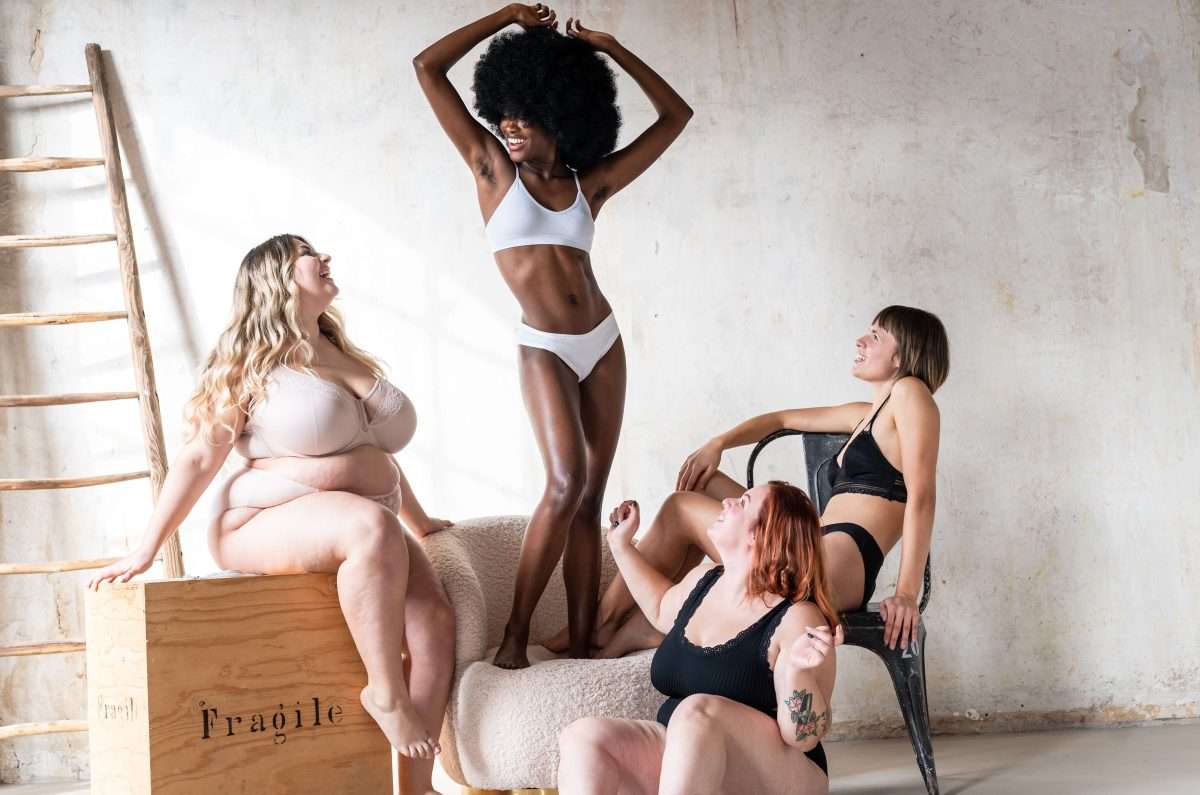Post at Apr 23, 2021
Relationship with Your Body

Body Image: your relationship with your body
What is body image?
Body image is a combination of the thoughts and feelings that you have about your body. Body image may range between positive and negative which varies from person to person.
A negative perception of the body is a very common thought that occurs in people of all ages these days, recent study states that kids aged 6-7 years old are also worried about gaining weight. Teenagers are more prone to have a negative self-image and are likely to develop self-esteem issues. The pressure to feel desirable by others is high due to the amount of exposure through social media and the beauty standards associated with social. Movies and social media have a very stereotypical image of how a personís body should look for them to be desirable enough.
Following are some examples of how body image issues look like in daily life
Anil is a 28-year-old male who works as an IT employee, recently a friend commented on him pointing out his figure, and lightly teased him of the same. He felt very ashamed and low about how he looked and instantly had a look at his picture from the previous year where he had a bulky body. He then engages in talking to himself negatively and also encourages others to make fun of him as he thinks he has lost control over those who make him feel ugly.
Riya is a teenager, who usually watches Koran dramas, the idea of a perfect body has been introduced to her through these series and movies after which she eats less and monitors every food itemís calorie count. She often gets exhausted from trying to achieve a sleek body and eventually ends up feeling that she can never be pretty.
Nadiya just became a mother and had gained weight during her pregnancy. She felt very conscious of her body.While she takes care of her newborn she constantly feels torn apart when she is unable to make time to take care of herself and exercise to get back in shape. The inability of achieving this left her feeling that she is now an unattractive person.She constantly checks her weight and is worried about how she appears to others.
Body Self Image
Do I have a negative body image?
This self-assessment is designed to help you identify if you have some symptoms of negative body image that may benefit from professional help. It is meant to help you examine your thoughts, feelings, and behaviors and is not designed to take the place of a professional diagnosis or consultation. Answer each item with yes or no.
Do I spend a lot of time worrying about what other people think about my appearance?
Do I spend more time thinking about what I dislike about my appearance, than what I like about it?
Is my appearance really important in how I evaluate my self-worth?
Do I avoid activities, people, or situations due to feeling self-conscious about my appearance?
Do I spend a lot of money, time, or effort attempting to "fix" my appearance flaws, or trying to look "perfect?"
Does my satisfaction with my appearance dictate my mood, or how happy I feel that day?
Do I often compare my appearance to others or check my appearance in mirrors?
Do I find myself seeking reassurance from others about my appearance or dismiss compliments I receive about my appearance?
Do I believe that my appearance is largely responsible for much of whatís happened to me in my life, or believe that I can control my future by improving my appearance?
Do my feelings about my appearance get in the way of accepting myself or enjoying my life?
If you answered "yes" to any of the above questions, you may be struggling with negative body image. Contact me today. You donít have to continue to struggle alone
Mirror on the wall, here we are again
Girls worry excessively about their weight and physical appearance and engage in excessively checking the mirror. They set out to have the "perfect" body, and they evaluate themselves based on their appearance, looks, and thinness above all things. However, boys also cannot get away. Boys are preoccupied with their physical strength and stature. The way that men view their bodies has changed. Boys live in a society where men are portrayed as dazzling "macho" characters who must be "tough," bulk up, and shape their bodies in order to fit in. They believe they must act like a "real" man, yet many acknowledge that they are unsure of what that entails or what is expected of them. Feeling good about oneself may be more difficult than ever due to this uncertainty.
What contributes to body image issues?
The Role of Social Media
The media is very important. Teenage girls are pushed to strive for an impossibility while surrounded by TV stars and skinny models. Because of this, many young females have an intense resentment for their bodies and can describe every flaw in them in minute detail. The majority of teenagers watch 22 hours of TV on average each week, and they are constantly bombarded with pictures of thin bodies in teen, fashion, and health publications. The "standard" is not attainable. A female should resemble Barbie and be of Barbie's size, and a male should resemble Arnold Schwarzenegger. Buff Baywatch lifeguards, Friends or Melrose Place cast members with six-pack abs, and music video queens don't help.
The Parental Role
If the parents are usually concerned about how their body looks and have a negative body image where they might question their kids by asking them, do I look fat? May give out the perception to the kid that being fat is not pretty.Especially if they themselves have food or body concerns or are always on a diet. The ability to develop self-esteem and confidence in our appearance depends on how we interpret and internalize these early cues about our bodies.
The Role of Western Society
Western culture gives a lot of weight to beauty. People who find themselves attractive have higher self-worth. Those who are thought of as being ugly may feel disadvantaged. The message we receive from the media, fashion, and our peers can engender a desire to be accepted by our culture and fit in at any cost. And that can be incredibly damaging to our sense of self.
The Craze of Diet
The diet and fitness craze is absurd. Diet foods and advertisements are also a part of dieting. Everyone is tracking their fat grams. Pay attention to the discussions going on in the locker room, lunchroom, or on the school bus. Dieting, having thick "abs" or fat thighs, and how many pounds may be shed with the newest diet are the topics of conversation. When taken to the extreme, this kind of obsessive focus on food and fat can result in abnormal eating patterns or disordered eating, which is a precursor to eating disorders.
When Princess Di started talking openly about her battles with bulimia in 1995, the public's understanding of eating disorders significantly increased.
Why positive self-image is very crucial?
Low self-esteem is closely tied to negative body image.
Teenage years involve significant transformation and self-perception challenges, if one has a positive self-image the transformation is healthy.
Self-esteem and body image are crucial for a positive self-image.
Body image encompasses and it affects thoughts, feelings, judgments, sensations, and behavior.
Body image is formed through social interactions and exposure to the environment
Self-esteem: a subjective assessment of one's value as a person.
Self-respect, self-assurance, and self-esteem are all interconnected. Self-esteem is also described as the assessments one makes of oneself and is influenced by respect and self-assurance. Self-confidence is the conviction that we can act and achieve our objectives.
The extent to which we regard ourselves as deserving of happiness, fulfilling relationships, and the ability to stand up for our principles and ideals. Every aspect of your life is impacted by how you view yourself. A life with high self-esteem is happier. It enables you to be who you are and prevents others from defining you.
If you are someone battling with low self-esteem or you have some concerns, anxiety or worries feel free to connect for further help reach out to

